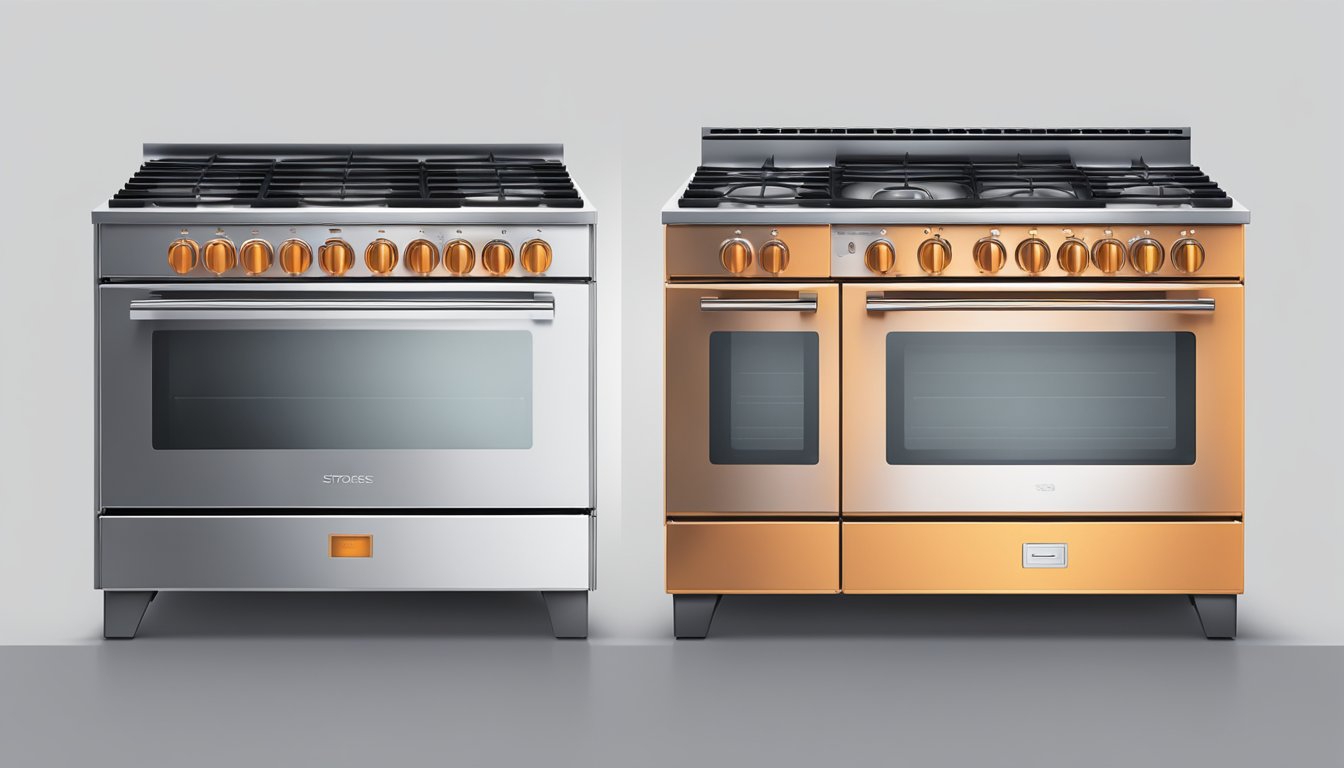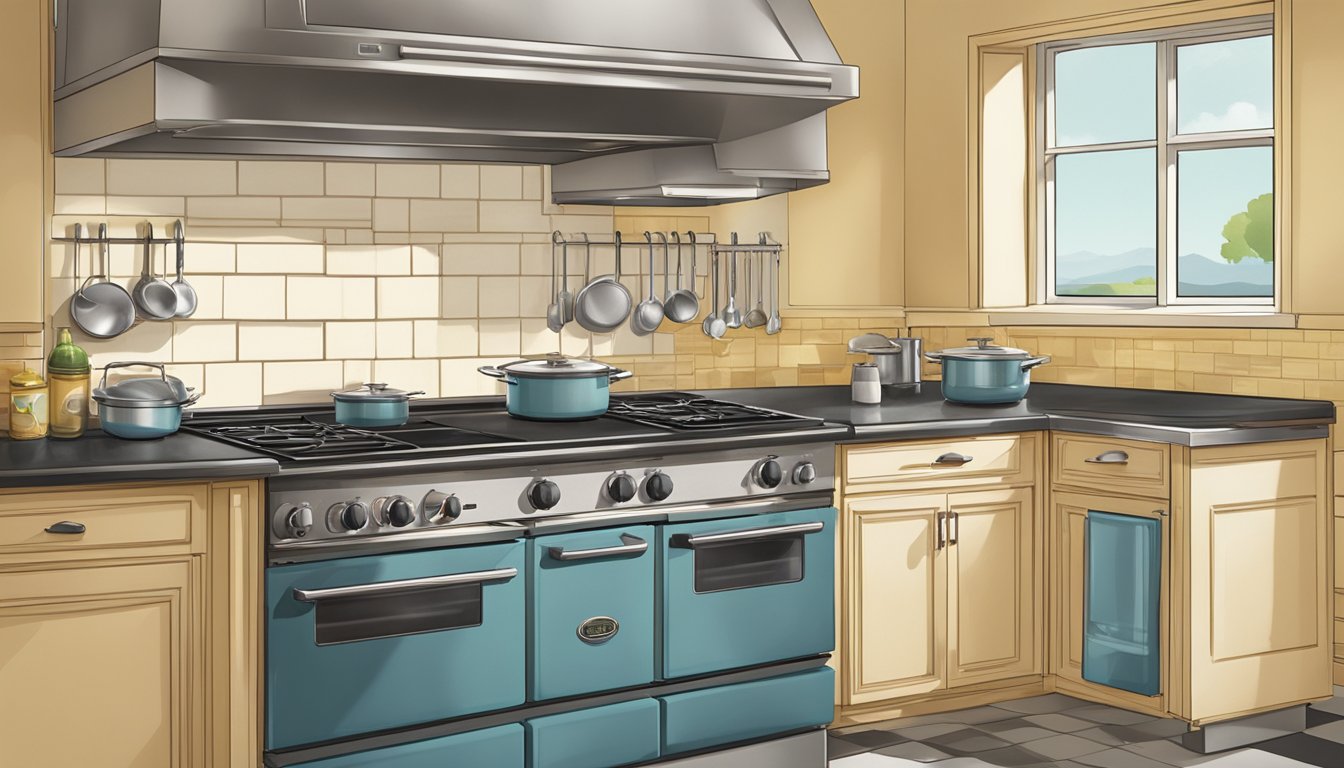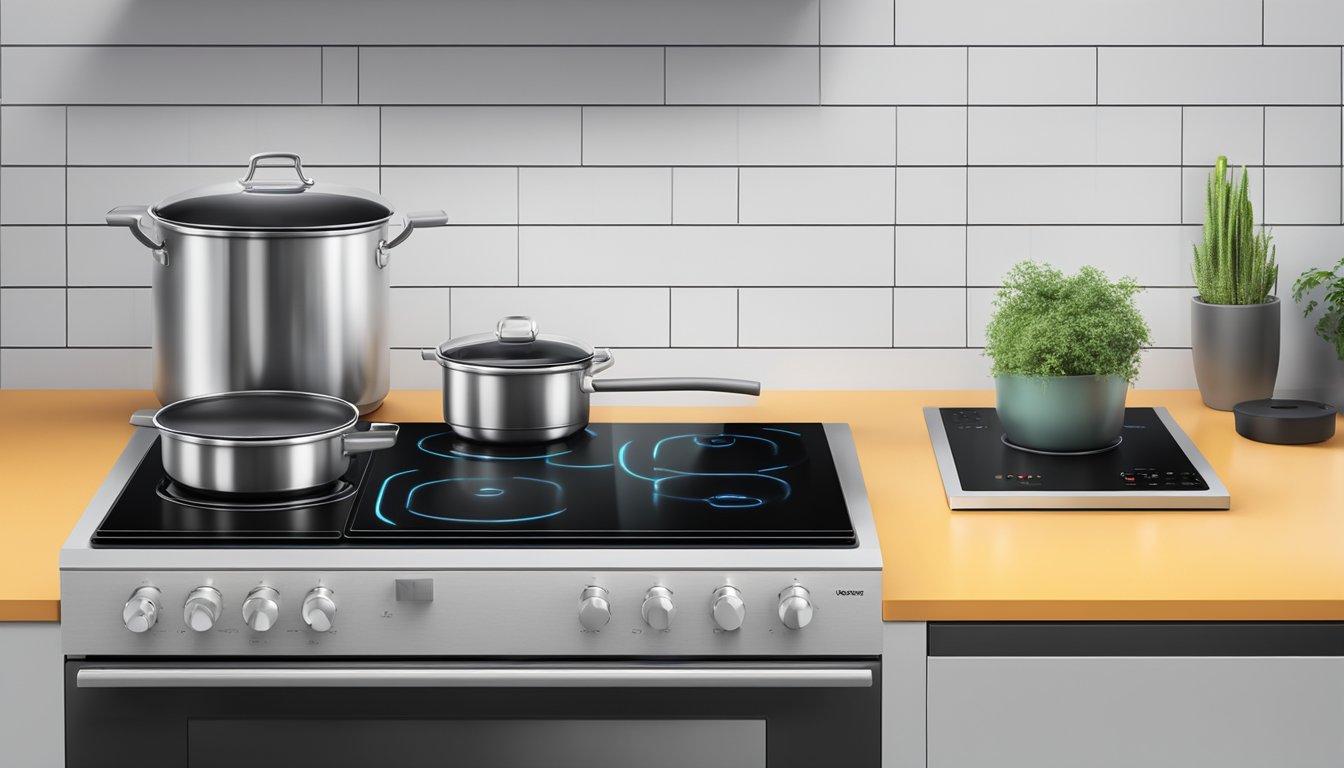Electric vs induction stove is a common debate among homeowners and professional chefs alike. Both types of cooktops have their pros and cons, and choosing the right one for your kitchen can be a challenging task. In this article, we'll compare electric and induction cooktops and help you decide which one is the best for your cooking needs.

Understanding Cooktop Technologies: Electric cooktops use heating elements that are powered by electricity to heat up the cookware. They are the most common type of cooktops and are relatively inexpensive. Induction cooktops, on the other hand, use magnetic fields to heat up the cookware. They are more energy-efficient and faster than electric cooktops, but they are also more expensive.
Cost and Efficiency Analysis: Electric cooktops are cheaper than induction cooktops, but they are less energy-efficient. Induction cooktops are more expensive, but they use less energy and are faster than electric cooktops. If you cook a lot and want to save money on your energy bills in the long run, an induction cooktop may be a better option for you. However, if you don't cook often and want to save money upfront, an electric cooktop may be a better choice.
Key Takeaways
- Electric cooktops use heating elements that are powered by electricity, while induction cooktops use magnetic fields to heat up the cookware.
- Induction cooktops are more expensive but are more energy-efficient and faster than electric cooktops.
- If you cook a lot and want to save money on your energy bills in the long run, an induction cooktop may be a better option for you.
Understanding Cooktop Technologies

When it comes to choosing a cooktop, you have two main options: electric and induction. Both electric and induction cooktops have their own unique features and benefits, so it's important to understand the differences between them before making a decision.
Electric Cooktop Basics
Electric cooktops use metal coils to generate heat. These coils are located beneath a glass or ceramic surface, which heats up and transfers the heat to your cookware. Electric cooktops are known for their simplicity and reliability, and they are compatible with a wide range of cookware.
Induction Cooktop Fundamentals
Induction cooktops use induction technology to generate heat. These cooktops use an electromagnetic field to heat up your cookware directly, rather than heating up the surface of the cooktop. Induction cooktops are known for their speed, efficiency, and precision, and they are compatible with induction-compatible cookware made of cast iron or stainless steel.
Comparing Heating Elements
One of the main differences between electric and induction cooktops is the way they generate heat. Electric cooktops use metal coils, while induction cooktops use electromagnetic energy. Induction cooktops are generally more energy-efficient than electric cooktops, as they heat up your cookware directly, rather than heating up the surface of the cooktop.
Cookware Compatibility
When it comes to cookware compatibility, induction cooktops have a clear advantage. Induction cooktops require cookware made of ferromagnetic material, such as cast iron or stainless steel. Electric cooktops, on the other hand, are compatible with a wide range of cookware.
Design and Aesthetics
Both electric and induction cooktops come in a range of designs and styles, so you can choose the one that best fits your kitchen decor. Electric cooktops are available with either coil or glass surfaces, while induction cooktops are typically made of glass or ceramic.
Safety Features
Both electric and induction cooktops have safety features designed to protect you and your family. Electric cooktops have residual heat indicators, which let you know when the surface is still hot. Induction cooktops, on the other hand, only generate heat when there is compatible cookware on the surface, making them safer to use.
Environmental Considerations
Induction cooktops are generally more energy-efficient than electric cooktops, which can help reduce your energy bills and your carbon footprint. Electric cooktops can also produce indoor pollutants such as methane and nitrogen dioxide, which can be harmful to your health. Installing an air purifier can help reduce these pollutants.
Installation and Upkeep
Both electric and induction cooktops are easy to install and maintain. Electric cooktops are generally easier to clean, as they have a flat surface with no crevices. Induction cooktops, on the other hand, require special induction-compatible cookware and can be more difficult to clean.
Additionally, choosing between an electric and induction cooktop depends on your personal preferences and needs. If you're looking for a cooktop that is energy-efficient, precise, and easy to clean, an induction cooktop may be the best choice for you. If you prefer a simpler, more traditional cooktop, an electric cooktop may be the way to go. Regardless of which option you choose, Megafurniture.sg, a leading Singapore ecommerce furniture store, offers a wide range of high-quality cooktops to meet your needs.
Cost and Efficiency Analysis

When it comes to choosing between electric and induction cooktops, cost and efficiency are two of the most important factors to consider. In this section, we'll take a closer look at the costs and efficiency of both types of cooktops to help you make an informed decision.
Initial Costs and Long-Term Savings
Electric cooktops are generally more affordable than induction cooktops, making them a budget-friendly option. However, induction cooktops are more energy-efficient, which can lead to long-term savings on your electricity bill.
If you're looking to save money upfront, an electric cooktop may be the better choice. However, if you're willing to invest in a more expensive induction cooktop, you may be able to save money in the long run.
Energy Consumption and Efficiency
Induction cooktops are more energy-efficient than electric cooktops, consuming significantly less energy and heating food or liquids faster compared to gas and electric. Induction cooktops are also more precise in their temperature control, allowing for more efficient cooking and reducing the risk of overheating.
If energy efficiency is a priority for you, an induction cooktop is the clear winner. Not only will it save you money on your electricity bill, but it will also reduce your carbon footprint and help you do your part for the environment.
Cooking Performance and Time
When it comes to cooking performance and time, both electric and induction cooktops have their pros and cons. Electric cooktops are good for simmering and boiling, while induction cooktops are better for precise temperature control.
If you're looking for a cooktop that can handle a variety of cooking tasks, an electric cooktop may be the better choice. However, if you're looking for a cooktop that excels in precise temperature control, an induction cooktop is the way to go.
Maintenance and Lifespan
Both electric and induction cooktops are relatively easy to clean and maintain. However, induction cooktops have a longer lifespan than electric cooktops, which can save you money in the long run.
If you're looking for a cooktop that requires minimal maintenance and has a long lifespan, an induction cooktop is the way to go. Not only will it save you money on repairs and replacements, but it will also provide you with years of reliable use.
In conclusion, both electric and induction cooktops have their pros and cons when it comes to cost and efficiency. If you're looking for a budget-friendly option, an electric cooktop may be the better choice. However, if you're willing to invest in a more expensive cooktop for long-term savings and energy efficiency, an induction cooktop is the way to go. At Megafurniture.sg, we offer a wide range of high-quality cooktops to suit your needs and budget. Shop with us today and experience the benefits of a reliable and efficient cooktop.
Frequently Asked Questions

What are the advantages and drawbacks of using an induction cooktop compared to a traditional electric one?
Induction cooktops offer several advantages over traditional electric cooktops. Induction cooktops heat up faster, respond more quickly to changes in temperature, and are more energy-efficient. They also provide precise temperature control, which is ideal for cooking delicate dishes. On the other hand, induction cooktops can be more expensive than electric cooktops, and they require special cookware.
How does the energy consumption differ between induction and electric stoves?
Induction cooktops are more energy-efficient than electric cooktops. Induction cooktops only heat up the cookware, while electric cooktops heat up the entire cooking surface. This means that induction cooktops use less energy and are more environmentally friendly.
Can you highlight the differences between induction and electric cooktops from a consumer's perspective?
From a consumer's perspective, the main difference between induction and electric cooktops is the way they heat up. Induction cooktops use magnetic fields to heat up the cookware, while electric cooktops use heating elements to heat up the entire cooking surface. Induction cooktops are faster, more energy-efficient, and provide precise temperature control. Electric cooktops are more affordable and easier to use.
How can one distinguish between an induction cooktop and an electric one upon visual inspection?
You can distinguish between an induction cooktop and an electric cooktop by looking at the cooking surface. Induction cooktops have a smooth, flat surface with no visible heating elements. Electric cooktops have visible heating elements, such as coils or burners.
In terms of cooking performance and cost, which is more efficient: an induction or an electric hob?
In terms of cooking performance and cost, induction cooktops are more efficient than electric cooktops. Induction cooktops heat up faster, provide precise temperature control, and are more energy-efficient. While induction cooktops may be more expensive than electric cooktops, they can save you money in the long run by reducing your energy consumption.
Is there a consensus among professional chefs regarding the preference for induction over electric hobs?
Professional chefs generally prefer induction cooktops over electric cooktops. Induction cooktops provide precise temperature control, which is essential for cooking delicate dishes. They also heat up faster and are more energy-efficient, which can save time and money in a professional kitchen.








